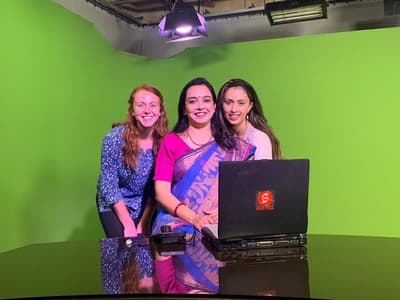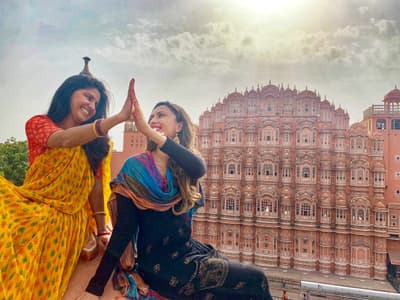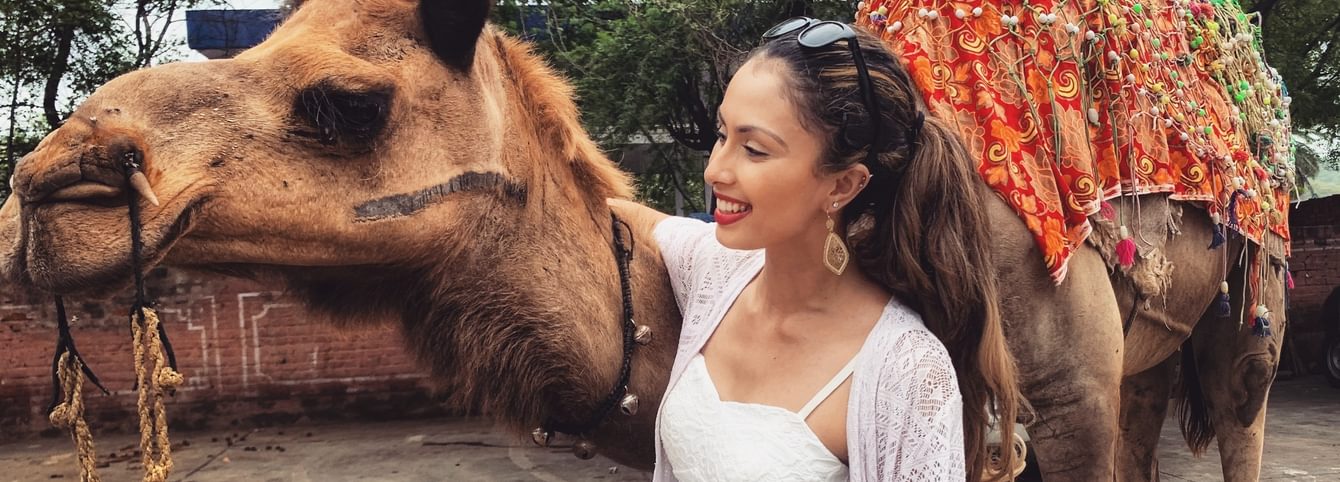Stephanie Downing
Stephanie Downing is an alumna of the 2019 CLS Hindi program in Jaipur, India. She’s a recent graduate of Marymount University with an undergraduate degree in Criminal Justice and minor in Forensic and Criminal Investigations. She currently works in law enforcement in Washington, D.C. In her free time, she enjoys traveling, hiking, running, paddle-boarding, and snorkeling whenever she gets the chance.
Getting to Know Stephanie
I was born and raised Ewa Beach, Hawaii. After completing the NSLI-Y program as a senior in high school, I was eager to explore career options in the federal government, so I figured that studying in the nation’s capital would be the best way for me to explore a range of career paths and build my professional network.
I have danced hula and Tahitian dance for fifteen years; I performed in hula pageants for many years, and it is arguably what I miss the most about home (besides my family and poke bowls).
The Road to Language Learning

During high school, I spent a summer in India as a volunteer English teaching assistant where, despite my good intentions, I often felt unproductive due to the language barrier and lack of cultural understanding. I felt detached from getting to know my students as I had to rely on a translator to communicate in class. This experience taught me that if I ever wanted to live or work abroad, or even interact with people with different backgrounds, it would be imperative to broaden my knowledge of different cultures, languages, and backgrounds.
When I participated in the National Security Language Initiative for Youth (NSLI-Y) Hindi program in Indore, India, I was surprised by how quickly my confidence in the language and understanding of Indian culture and customs developed. Four years later, I applied to the CLS Hindi program for the same reasons – I wanted to strengthen my background in foreign language and apply them to my professional career.
Reconnecting with (Host) Family
On one of my free weekends during CLS, I visited my NSLI-Y host family in Indore. Even though it had been four years since I had seen them, they still considered me a family member and it was so heartwarming. They had kept my old Hindi books from NSLI-Y in the room where I had stayed and there was a photograph of me and their family in the living room. At this point, my Hindi was much stronger than it had been four years prior, and my host family was impressed by my commitment to language learning. I am forever grateful that I had the experience to visit them again as it has strengthened our relationship and reaffirmed why I continue to do the work I do to strengthen our relations with the international community.
Citizen Diplomacy in Action

As the only CLS Hindi student from Hawaii, I became a citizen ambassador of my home state whenever people would ask about Hawaiian culture or whether people actually wear grass skirts. I was surprised to learn that many people in my host community were unaware that Hawaii was a U.S. state. Teaching host family and language partner about the former Kingdom of Hawaii and our transition into statehood presented me with a powerful platform to not only be aware of my own culture but educate those who may never have a chance to visit the islands.
Additionally, living in India this summer taught me that I can belong to several communities, and that the concept of “home” isn’t necessarily limited to a single place. After assimilating into Indian culture in living with host family, I began to develop a stronger ability to adapt to different customs and ways of life. Once I returned to the U.S., I found myself missing certain parts of my routine in India and questioned the way that we do things here in the U.S. This was a powerful realization for me because it strengthened my pre-existing beliefs and I developed a newfound respect and admiration for different cultures and perspectives on life.



